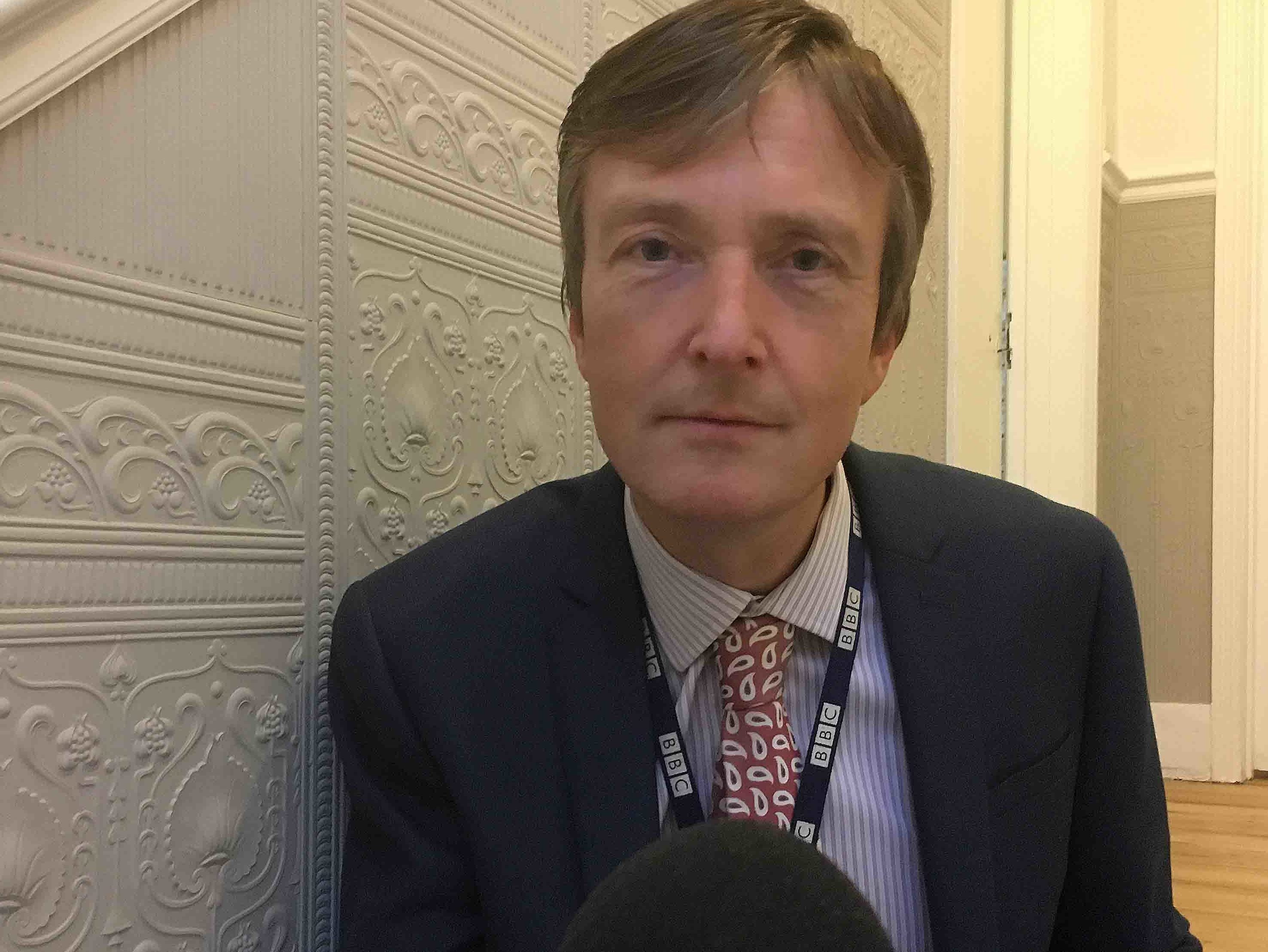
Diabetic BBC World Service journalist Alex Ritson explains how a hypoglycemic attack left him dazed and confused while reading the news live on the radio.
To hear the incident, from which he recovered fully and made it back on-air the same morning, listen to the audio below (warning: some listeners may find this distressing).
Most newsreaders I know have one thing in common – a recurring dream where everything starts going wrong a few minutes before the top of the hour and they only just make it into the studio on time.
When the pips finally sound, they look down and realise all their scripts are blank, and they end up spouting seemingly endless gibberish before finally waking up in a cold sweat, only to find they are safely in bed.
On the first of December, it happened to me, live on the BBC World Service and Radio 4 at 5am in the morning. But it wasn’t a dream. This time, it was real.
The reason was medical. I have type one diabetes and my on-air nightmare was caused by a severe hypoglycemic attack, or “hypo”.
To put that simply – it’s “low batteries”. A lack of sugar, or fuel for all the cells in the body, most notably key bits of the brain.
And it was terrifying. As I was trying to read the script, my eyes started operating independently of each other, creating two swirling pages of words, neither of which would stay still.
And I had a strange sensation which I can only describe as my subconscious, for reasons of survival, independently trying to wrestle my life controls away from my failing conscious mind.
Abilities which are secondary to vital functions like the heartbeat – such as the power of speech and of reasoning – were being switched off.
Fortunately, I work with a great team. Producer Neil Nunes steadied the ship by reading a perfect news bulletin after my cringe-worthy opening sequence, as my colleagues helped me wolf down more than a dozen sachets of sugar.
I returned to the airwaves, at six minutes past the hour, and before long was pretty much back to normal. I explained what had happened to the listener, and had some really lovely messages from all over the world.
And I was lucky to be able to do this. Roughly one in three hundred people have the condition – and many would agree with me that one of the worst parts is the embarrassment caused by such episodes.
People who witness your symptoms generally assume you are drunk or rude. There have been terrible cases of people being arrested for their disorderly behaviour and thrown in the cells – only to be found dead the following morning.
I know a few other people at the BBC who have this condition. We have all shared private horror stories with each other – near misses which we don’t even dare tell our partners about. But that’s life – that is the reality of living with type one diabetes.
If it’s well controlled, you will have occasional low sugar episodes. We don’t want to be wrapped in cotton wool, or asked to work less, or do easy things.
I spend my life trying to do as much as possible. I play football three or four times a week, I do lots of DIY with power tools.
I have strategies for making sure I’m fine at these and other key moments – such as when I’m presenting radio programmes. In a pretty long career, they’ve been very effective.
If someone you know has type one diabetes and you see them sweating, yawning or looking incredibly tired or being uncharacteristically drunk or moody, ask them to check their sugar level.
If it’s less than four, get them a can of coke – or some sachets of sugar from the tea bar. You could save them from – what was for me – my worst ever day at work.
Picture: BBC
Email pged@pressgazette.co.uk to point out mistakes, provide story tips or send in a letter for publication on our "Letters Page" blog
